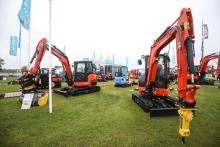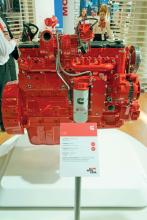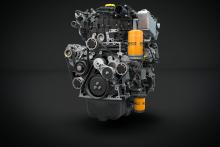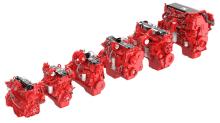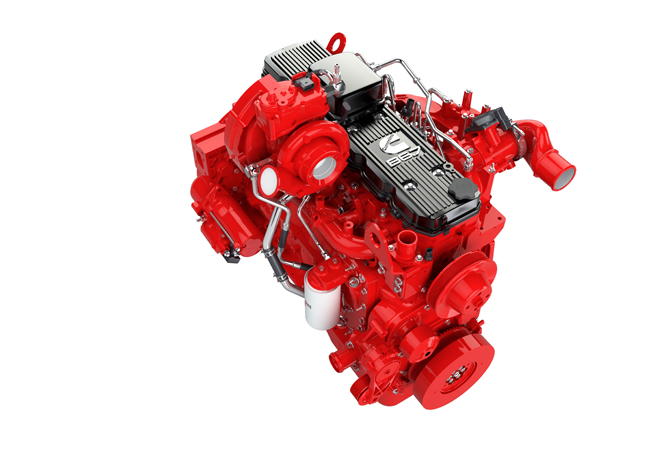
This year’s
Steve Nendick, marketing communications director at engine manufacturer
Looking at the off-highway sector you would be forgiven for thinking that the age of full-electrified plant machinery is upon us. This year’s bauma show saw the world’s leading original equipment manufacturers (OEMs) unveiling a diverse range of fully electric machines from dumpers to excavators. Indeed, Cummins, synonymous with diesel power, celebrated its 100th birthday at the show with a fully electric mini-excavator prototype showcased on our stand.
So, what does this mean for diesel and does it remain as the go-to power solution for the aggregates sector?
Emission legislation has become progressively stricter, as seen with the introduction of Stage V at the start of the year. There are also the tough new ultra-low emission zones in major cities like London, part of a wider, radical anti-pollution policy. Engine manufacturers have met this challenge by refining diesel engine technology, to give a total reduction in NOx of 96% and particulate matter (PM ) of 97% since regulations began. In real-world operation, the emissions are so low it is a challenge to actually measure them.
But it’s not just about meeting emissions, we are pushing the diesel engine onto the next rung of its evolutionary ladder, and not compromising on performance. Cummins’ new Stage V suite of engines, ranging from 3.8-9 litres (75-321 kW), has reduced weight, size and complexity, yet they deliver on average 10% more power and 20% more torque than their Stage IV counterparts. OEMs and end users benefit as they have an opportunity to increase the capability of their existing machines or select a smaller engine with higher performance – saving weight and money. This makes a compelling case for operators to retain ultra-clean diesel power as their go-to power source.
Cummins is investing in a diverse range of power solutions including clean diesel, hybrid, electric, natural gas and fuel cells. We recognise that it is not ‘one-size-fits-all’, and we will need to work with customers to define the best solution for their equipment. The optimum solution is largely dependent on the duty cycle of the machine. Whichever solution is applicable, we will bring it to market in a dependable way, just as we have done with diesel for 100 years.
OEMs have been pushing off-highway electric power with the unveiling of exciting new plant. Smaller machines, such as mini-excavators, smaller rollers and compact wheeled loaders, seem more suitable for electrification, particularly when working in urban environments. They are not only emission-free at source but are also extremely quiet. The current battery technology can meet their relatively modest demands for power along with adequate access to charging capacity.
For larger, more remote-working, more power-hungry machines, as used in the aggregates industry, then only diesel engines can realistically match the performance - for the foreseeable future at least. A 20-tonne excavator can use 480 kWh in an average working day in a quarry and even the most advanced lithium-ion batteries don’t deliver nearly enough power density required to both power the machine and be effectively installed within its body. Similarly, diesel-powered applications can run continuously up to 20 hours, with multiple intervals of peak power, before being refuelled in-situ via a bowser.
The happy medium for larger plant could be diesel-electric hybridisation, especially for applications working in urban environments with low emission zones. This marriage of battery power and compact engine-generator gives operators much more flexibility where charging infrastructure is not easily accessible during a working shift. It delivers a good balance of lower emissions, lower fuel consumption and lower noise without impacting operational efficiency.
The expectation is that battery technology will increase in capability while reducing in price. This is why Cummins has invested in battery companies (Brammo and JMBS) to be ahead of the curve. Until this happens though, the business case for electric doesn’t quite stack up, and diesel will remain a significant power source for the aggregates industry for some time yet.


